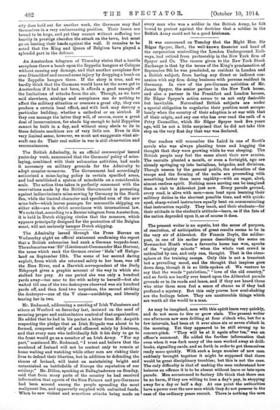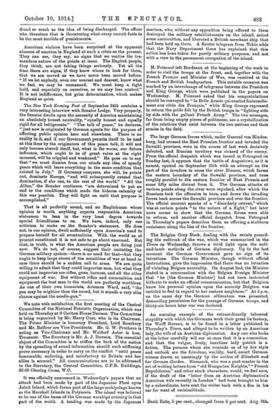As may be imagined, men with this spirit learn very
quickly, and do not seem to tire or grow stale. The present writer one afternoon saw men drilling at four o'clock who, but for a few intervals, had been at it ever since six or seven o'clock in the morning. Yet they appeared to be still strung up to concert-pitch. " They will be at it again after tea," was an officer's comment. He added the further information that even when it was dark many of the men worked away at drill- books, signalling cards, and so forth in order to get themselves ready more quickly. With such a large number of new men suddenly brought together it might be supposed that there would be great disciplinary troubles; but this is not the case. The only difficulty is that of making the men understand how heinous an offence it is to be absent without leave or late upon parade. Men accustomed to factory life think that there can be no harm, if they are willing to lose a day's pay, in stopping away for a day or half a day. At one point the authorities have a power over the new men which they do not possess in the case of the ordinary peace recruit. There is nothing the men
dread so much as the idea of being discharged. The officer who threatens that is threatening what every recruit feels to be the most terrible of punishments.



































 Previous page
Previous page